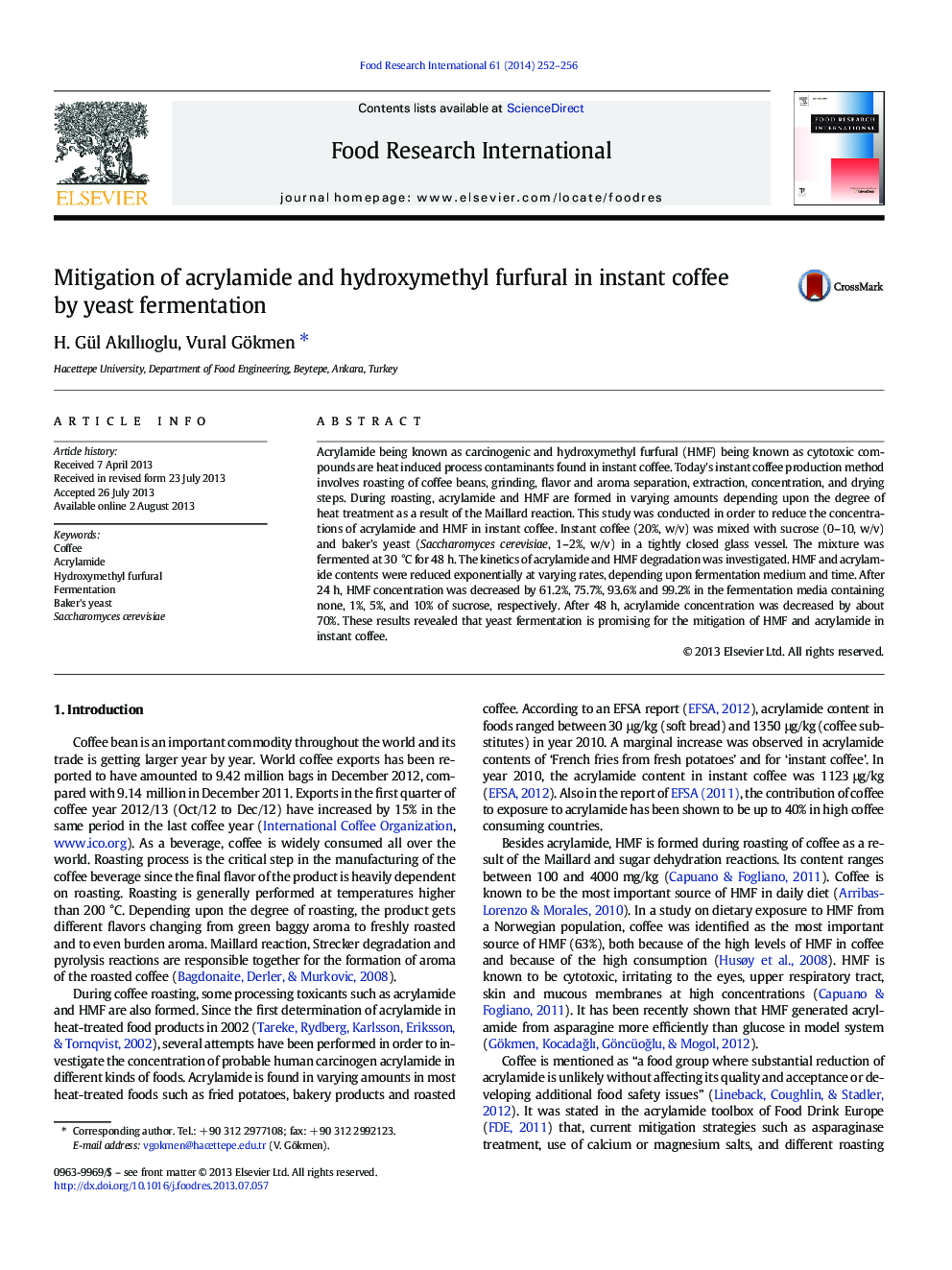| Article ID | Journal | Published Year | Pages | File Type |
|---|---|---|---|---|
| 6396434 | Food Research International | 2014 | 5 Pages |
â¢Baker's yeast decreased HMF and acrylamide concentrations in instant coffee.â¢Sucrose and yeast inoculum affected the rates of HMF and acrylamide degradations.â¢Fermentation is promising for mitigation of HMF and acrylamide in instant coffee.
Acrylamide being known as carcinogenic and hydroxymethyl furfural (HMF) being known as cytotoxic compounds are heat induced process contaminants found in instant coffee. Today's instant coffee production method involves roasting of coffee beans, grinding, flavor and aroma separation, extraction, concentration, and drying steps. During roasting, acrylamide and HMF are formed in varying amounts depending upon the degree of heat treatment as a result of the Maillard reaction. This study was conducted in order to reduce the concentrations of acrylamide and HMF in instant coffee. Instant coffee (20%, w/v) was mixed with sucrose (0-10, w/v) and baker's yeast (Saccharomyces cerevisiae, 1-2%, w/v) in a tightly closed glass vessel. The mixture was fermented at 30 °C for 48 h. The kinetics of acrylamide and HMF degradation was investigated. HMF and acrylamide contents were reduced exponentially at varying rates, depending upon fermentation medium and time. After 24 h, HMF concentration was decreased by 61.2%, 75.7%, 93.6% and 99.2% in the fermentation media containing none, 1%, 5%, and 10% of sucrose, respectively. After 48 h, acrylamide concentration was decreased by about 70%. These results revealed that yeast fermentation is promising for the mitigation of HMF and acrylamide in instant coffee.
